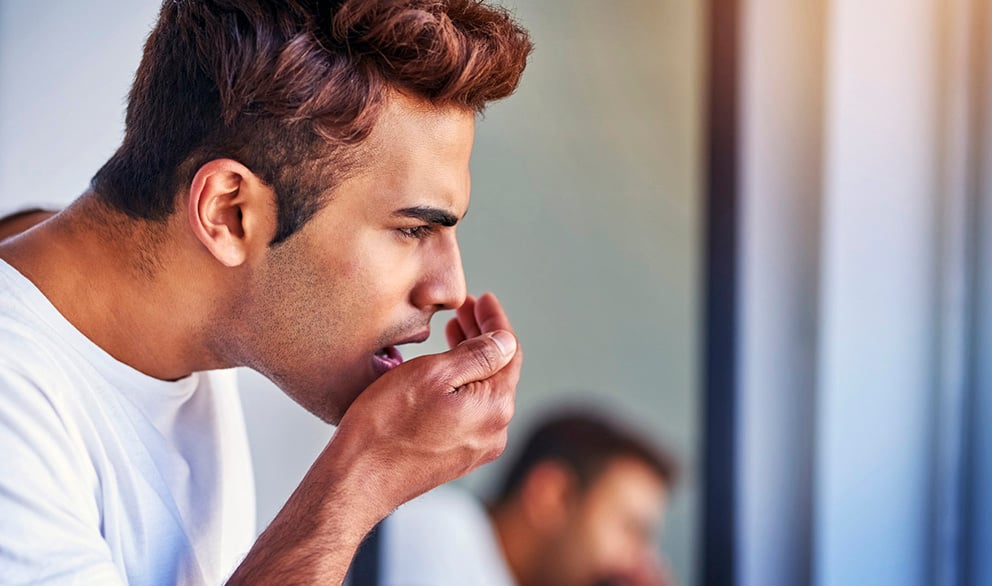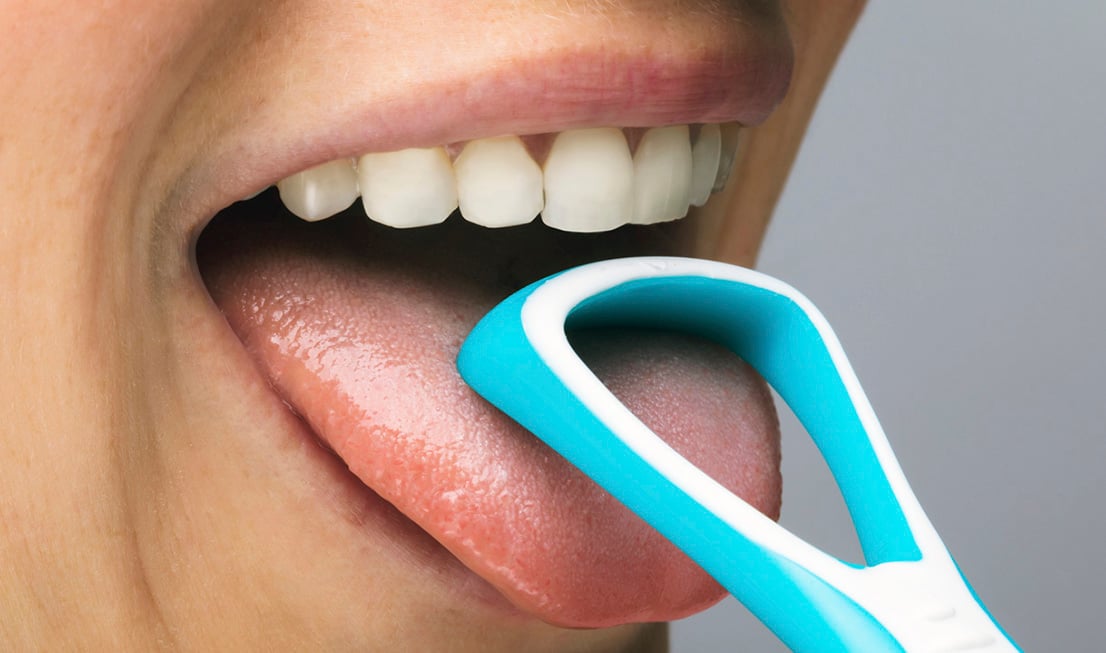About 90% of cases of bad breath, also known as halitosis, originate from the mouth. Here’s a look at some factors, including poor oral hygiene.

Everyone has had bad breath at some point in their life, whether it’s after a garlic-heavy meal or right after waking up in the morning. In fact, about half the world’s population have bad breath, also known as halitosis.
Having bad breath can be embarrassing, but in most cases, it can be easily fixed. But what about persistent bad breath that just doesn’t seem to go away? The root problem could be right under your nose — in your mouth, that is. It’s estimated that about 90% of all bad breath cases originate from the mouth, be it as a result of poor oral hygiene, dry mouth, gum disease or tooth decay.
The leading culprit? Odour-producing bacteria that live in your mouth; these bacteria can release smelly volatile sulfur compounds (VSCs) when breaking down food and protein. Let’s look deeper into this, and the top halitosis causes.

Bacteria that live in your mouth
There are about 700 species of bacteria that can be found in your mouth, and most of them are capable of releasing smelly VSCs. Poor oral hygiene can allow these bacteria to build up a form plaque that takes up residence on your tongue, your teeth and below the gumline. If plaque isn’t removed properly, it can lead to tooth decay and gum disease such as gingivitis and periodontitis — all of which also contribute to bad breath and poor oral health.

Brushing your teeth twice a day simply isn’t enough as it only cleans about 25% of your mouth. For a thorough cleanse, include an antibacterial mouthwash that can remove up to 99% of bacteria. Cleaning your tongue with a tongue scraper can also prevent the build-up of bacteria on your tongue — a simple but effective treatment of bad breath.

Dry mouth
Have you ever felt like your mouth is dry and uncomfortable? A lack of saliva not only leads to a dry, sticky feeling in your mouth, but it can also give you bad breath. That’s because saliva acts as a cleaning agent in your mouth, washing away bacteria and keeping it at a manageable level.
Reduced saliva in your mouth thus leads to bacteria build-up, contributing to bad breath. Lifestyle factors, including smoking, can also lead to dry mouth. Certain types of medication and health conditions can cause you to have dry mouth. If you think that your bad breath is caused by the medication you’re taking, speak to your doctor, who may adjust your dose or prescribe a new medication.

